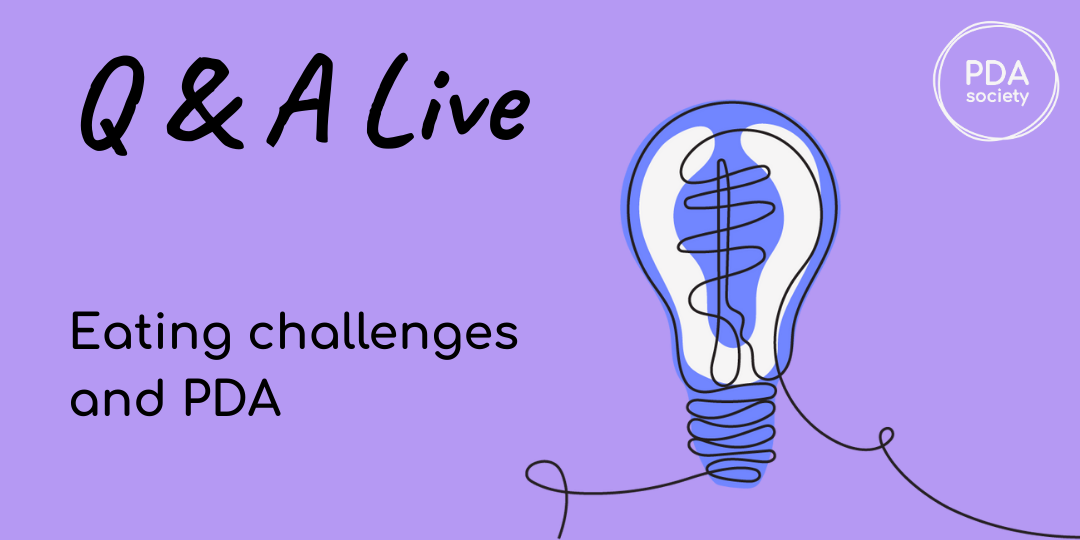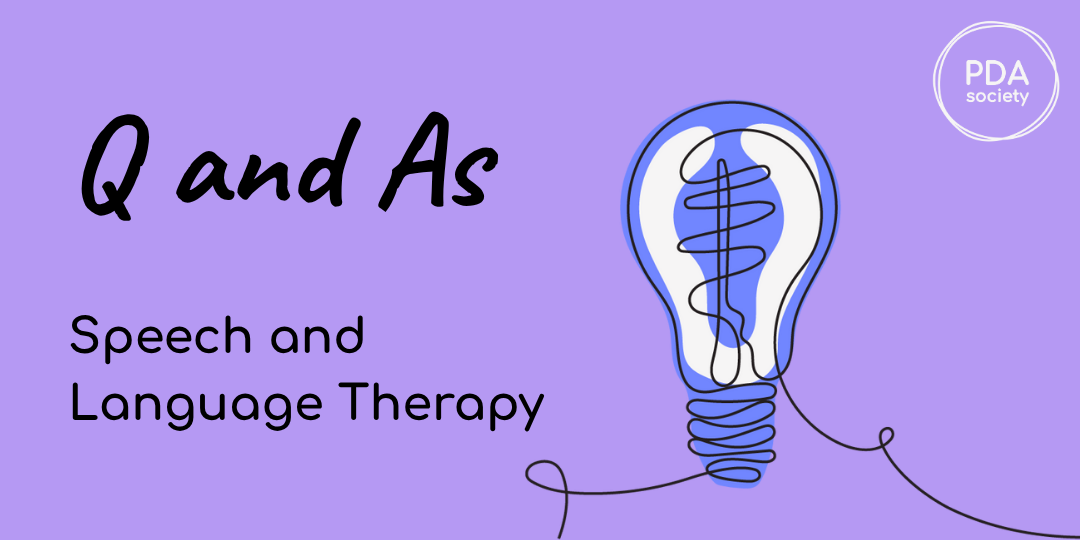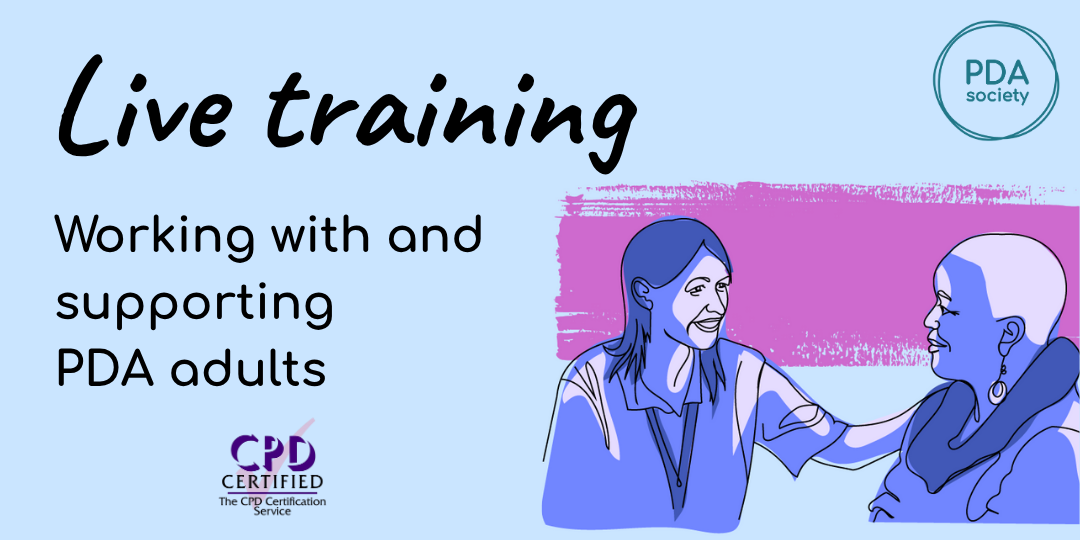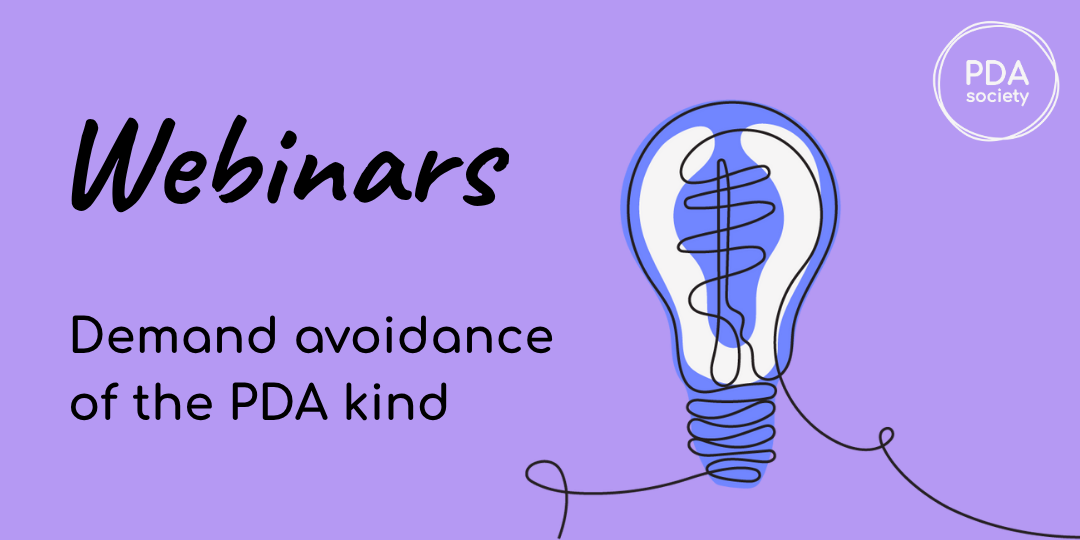
Overview
Thursday 16th October, 8:00 – 9:00pm (Online)
The PDA Society is delighted to offer a series of live Q&A sessions exploring different topics to support PDA people and their families.
Join us for this live session exploring the complex relationship between eating challenges and Pathological Demand Avoidance (PDA).
This interactive discussion will provide insight into how demand avoidance, sensory sensitivities, anxiety, and autonomy needs can all contribute to eating difficulties in PDAers — and offer practical guidance on how to respond supportively.
What to Expect
-
Lived experience insights from speakers with both professional expertise and personal understanding of PDA and eating challenges
-
Practical guidance on recognising how demand avoidance, sensory sensitivities, anxiety, and autonomy needs can impact eating behaviours
-
Supportive discussion around helpful approaches and small changes that can make a big difference
-
A safe, judgment-free space to ask questions, share experiences, and learn from others who truly understand
Whether you’re a PDAer, parent, carer, or professional, this session will offer valuable perspectives and real-world strategies to support eating challenges with compassion and confidence.
Guest Speakers
Asher Jenner
Asher works to raise awareness of the link between PDA and eating difficulties. She is training as an inclusive dance teacher and supports PDA understanding and awareness through advocacy, training, and co-authoring a self-help book for autistic teens.
James Harrison
James is an Independent Consultant Nurse specialising in Autism and Eating Disorders. Qualifying as both a Learning Disability Nurse and Social Worker in 2013, he has worked across a wide range of mental health services. For over five years, James worked with the Ellern Mede Group, where he created an Autism Pathway and led a team pioneering individualised adaptations to practice — work which was Highly Commended at the Learning Disability and Autism Awards 2023. He now works independently nationwide with complex presentations of Autism and Eating Disorders across NHS and private providers.
Questions
You can submit a question when registering, and we’ll answer as many as possible during the session. If time allows, there may also be an opportunity for live questions.
Please note: we cannot address specific personal situations in this Q&A. For individual support, please contact our support service.
Recording
The session will be recorded. After the event, you’ll have access to the recording for 30 days. If you are a subscriber you will have access for the duration of your subscription.
For privacy, please avoid sharing personal details in your questions.
Practical Details
-
No pressure to have your camera or mic on
-
Tickets are non-refundable within 14 days of the event and cannot be transferred within 24 hours of the start time
-
If you have additional needs, please let us know when booking so we can make arrangements
-
All materials are © PDA Society and for personal use only
-
The PDA Society may need to substitute speakers if required
-
Safeguarding is a priority: if concerns arise about a child or adult at risk, we may need to report them to the relevant authorities



